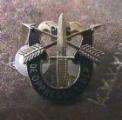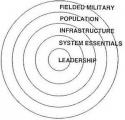7. Conclusions
The primary frontline COIN force is often the police, not the military. The primary COIN objective is to enable local institutions. Therefore, supporting the police is essential.
The ability to prevent an outbreak of insurgent activities rests on the perceived legitimacy of the government to provide its citizens security, rule of law, and a better way of life within some type of moral framework acceptable to the culture. When effective, police and law enforcement institutions can control just about any level of criminality and violence to a level acceptable to the populace. If the violence emanates from the armed actions of insurgents, police and law enforcement retain the capabilities to manage the situation at an acceptable level—that is, if the government correctly identifies the origins of the violence as insurgent in nature. If policing efforts cannot contain the insurgent threat, then they must either be reinforced or the government must choose to inject military might to defeat the insurgency.
Whether the government chooses a course of action to reinforce policing measures or deploy its military, maintaining the rule of law will remain paramount throughout the crisis to buttress legitimacy. In order to prevent a protracted conflict, which is a central component of insurgent strategy, combined military and paramilitary policing efforts, while simultaneously continuing community policing, are often the best method to defeat the enemy and return society to a level of law enforcement reasonable to control societal violence.
The police and law enforcement sectors are key enablers for the COIN practitioner. The police and law enforcement organizations often outnumber the personnel in the military, are closest to the problem, and are normally the first responders to insurgent violence. Conversely, a low level of perceived legitimacy on the part of the populace towards its law enforcement institutions, often due to corruption and ineptness within the police, can almost guarantee that the COIN effort will become more difficult in achieving its objectives.















Bookmarks